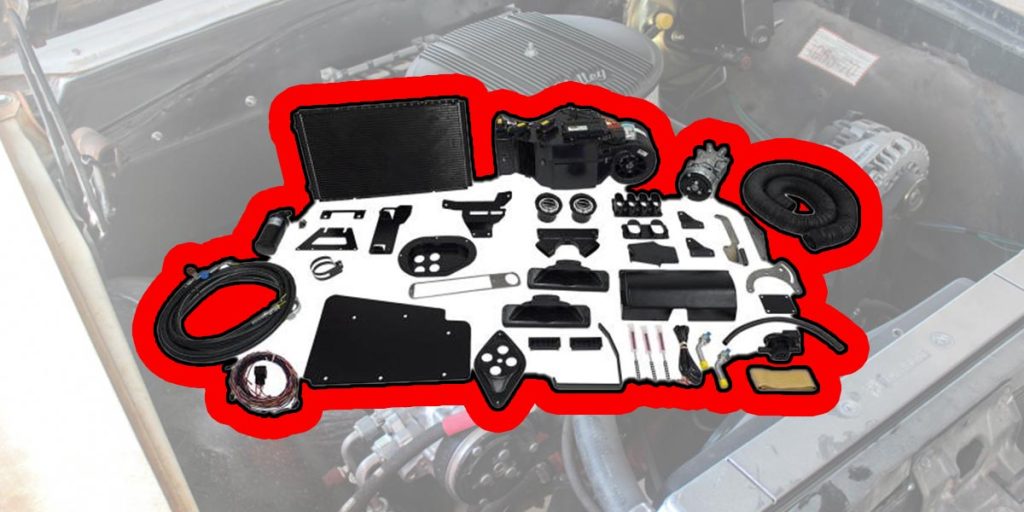
Adding Air Conditioning In A Non-A/C Car
Pros and Cons of Adding Air Conditioning Most classic cars didn’t have air conditioning installed from the factory. A/C was an expensive upgrade and in
Spark plugs are often overlooked components in a vehicle’s engine, yet they play a crucial role in igniting the air-fuel mixture to power the engine. Understanding spark plugs can lead to improved engine performance, fuel efficiency, and overall reliability. Spark plugs have various styles, heat ranges, materials, and configurations which can get overwhelming and confusing.
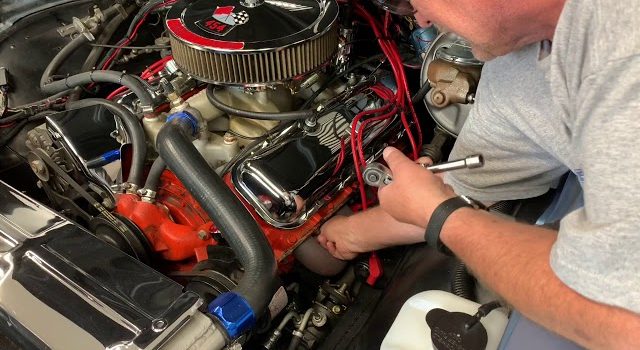
Spark plugs come in various styles, each designed for specific engine configurations and performance needs. The most common types include:
Copper Core Spark Plugs: These traditional spark plugs feature a copper core surrounded by a nickel alloy or platinum electrode. They offer good conductivity and heat dissipation, making them suitable for older vehicles and basic engine setups.
Platinum Spark Plugs: Platinum spark plugs have a platinum center electrode, which provides better longevity and resistance to wear compared to copper core plugs. They are ideal for modern engines with electronic ignition systems and offer improved performance and fuel efficiency.
Iridium Spark Plugs: Iridium spark plugs feature a fine iridium center electrode, known for its long-term durability and heat resistance. They deliver consistent sparks over an extended service life, making them ideal for high-performance engines and vehicles with turbocharging or supercharging.
Double Platinum Spark Plugs: Double platinum spark plugs have both the center electrode and ground electrode coated with platinum. This design further enhances durability and reduces electrode wear, ensuring reliable ignition performance over time.
The heat range of a spark plug refers to its ability to dissipate heat generated during combustion. Spark plugs are classified into hot, medium, and cold heat ranges, depending on their thermal characteristics. Choosing the right heat range is essential for optimal engine performance and longevity.
Hot Spark Plugs: Hot spark plugs have a longer insulator nose, which allows them to operate at higher temperatures without fouling. They are suitable for engines with low-speed driving or towing applications, where combustion temperatures are lower.
Cold Spark Plugs: Cold spark plugs have a shorter insulator nose and dissipate heat more effectively, making them ideal for high-performance engines or forced induction applications. They prevent pre-ignition and detonation by maintaining lower combustion temperatures.
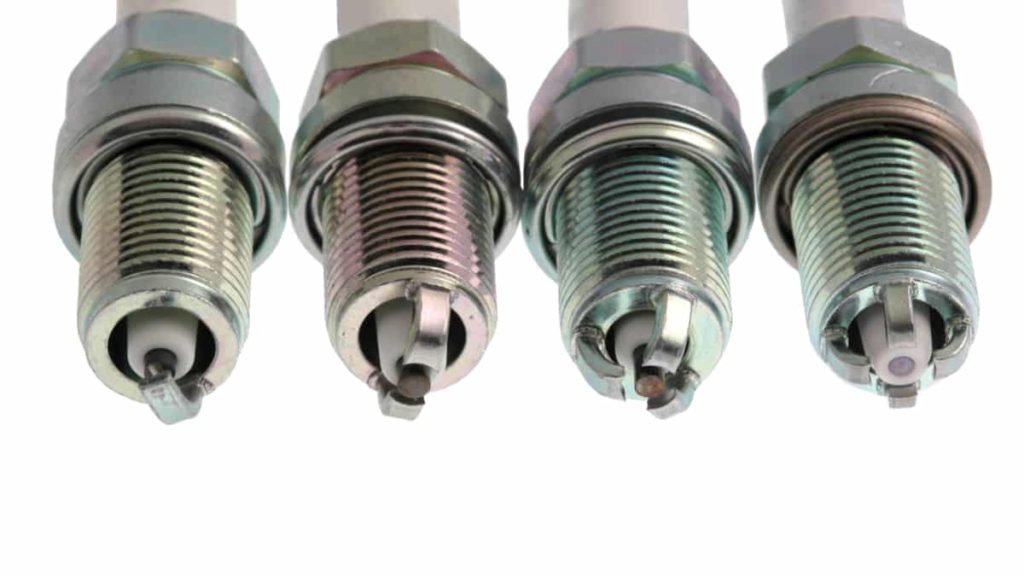
Most spark plugs feature a single prong. Over the years there have been dual, triple, and even quadruple-prong plugs. The theory here is that there will be additional arcs of electricity to light the fuel in the combustion chamber more effectively.
Most of that seems to be a marketing ploy and is up for debate; single prongs work just fine and are just as efficient as the others. Save your money and buy a better single prong than a lesser dual prong.
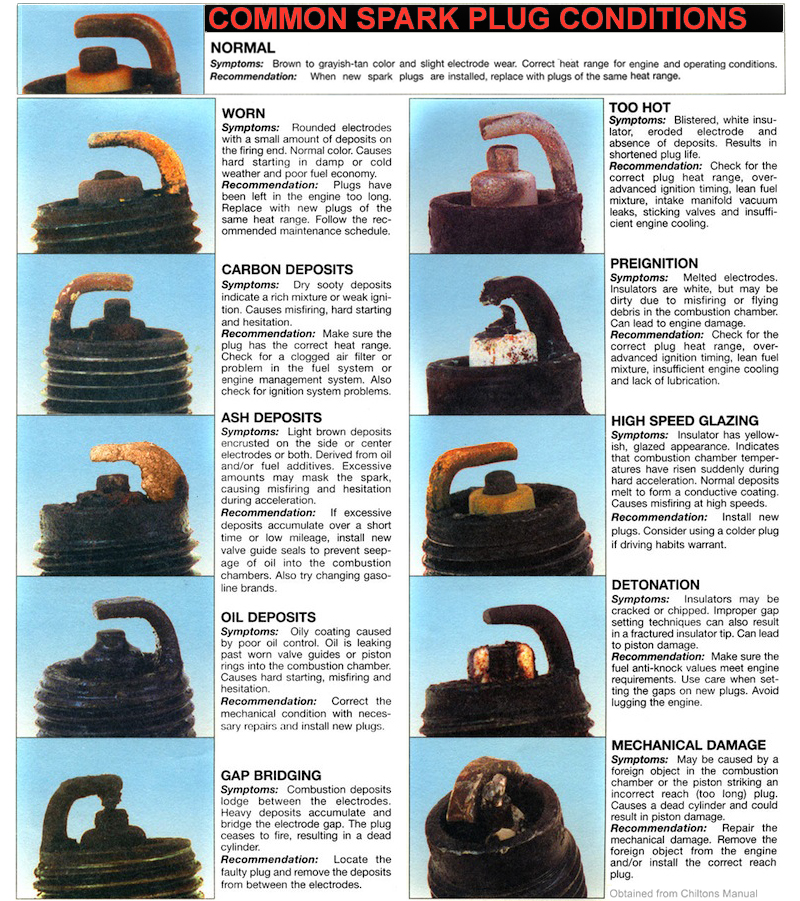
Proper installation and maintenance of spark plugs are essential for optimal engine performance and longevity. Follow these tips for installing and maintaining spark plugs:
Gap Adjustment: Ensure the spark plug gaps are correctly set according to the vehicle manufacturer’s specifications. Improper gap settings can lead to misfires, rough idling, and poor fuel economy.
Thread Lubrication: Apply a small amount of anti-seize compound to the spark plug threads before installation to prevent seizing and help future removal.
Torque Specification: Tighten spark plugs to the manufacturer’s specified torque using a torque wrench to prevent over-tightening or under-tightening, which can cause damage to the threads or cylinder head.
Regular Inspection: Periodically inspect spark plugs for signs of wear, fouling, or carbon deposits. Replace spark plugs at the recommended intervals to maintain optimal engine performance.
Carbon Fouling: If spark plugs become fouled with carbon deposits, remove and clean them using a wire brush and solvent. Be careful not to damage the electrodes during cleaning.
Electrode Wear: Monitor electrode wear over time and replace spark plugs if the electrodes are worn down or damaged. Worn spark plugs can cause misfires, engine hesitation, and reduced fuel efficiency.
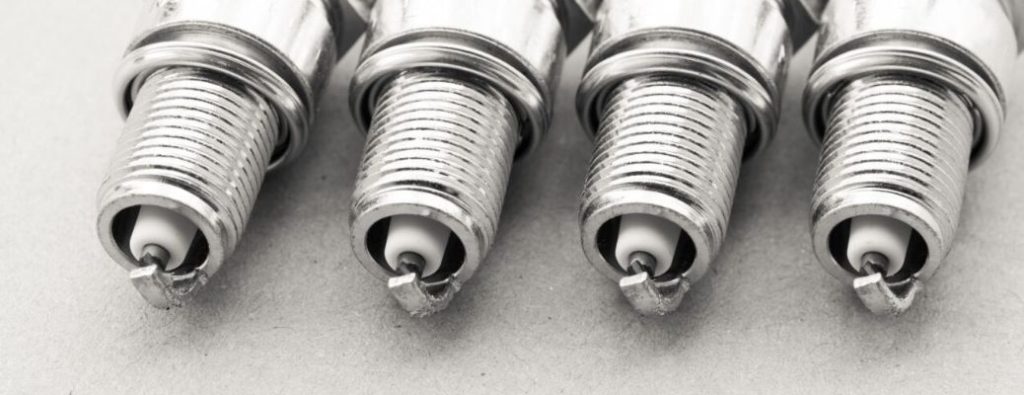
Without spark plugs, our engines simply wouldn’t run. Their role in igniting that fuel and air mixture is what makes them. Ensuring you have the right type of spark plug can make a difference in the performance of the engine. If you need help choosing spark plugs for your ride, give our friendly techs a call at (203) 235-1200, and as always we are available at SS396.com

Pros and Cons of Adding Air Conditioning Most classic cars didn’t have air conditioning installed from the factory. A/C was an expensive upgrade and in

Tax Day Sale! Get 10% Off* when you apply the Code: TAX25 during checkout on orders over $249, valid until 04/13/25 (9pm ET). Save on the essential parts that keep your restoration moving forward.

Get Your Kicks….On These Routes With summer just around the corner, we are itching to get behind the wheel and put some miles on our
